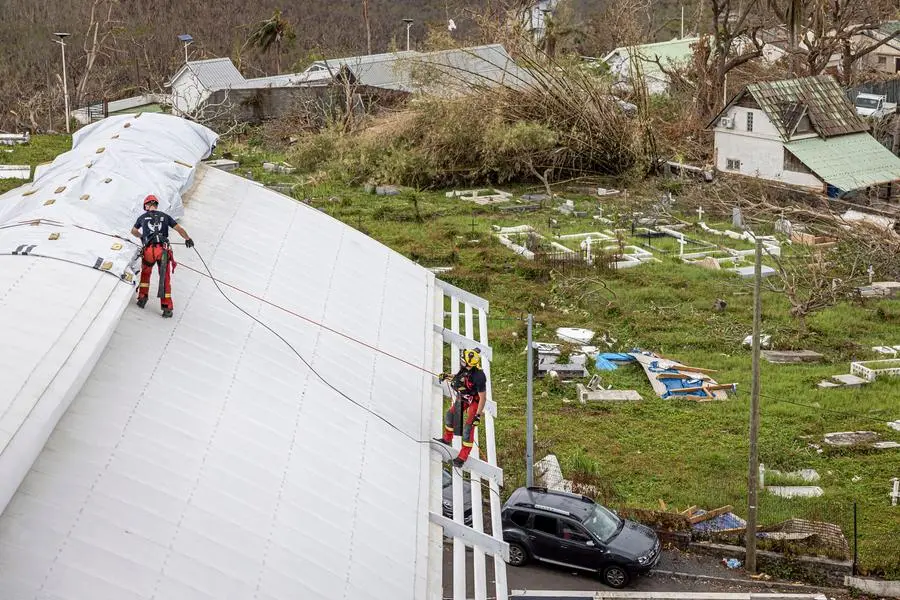PHOTO
Mozambique has declared two days of national mourning for the 73 people killed by Cyclone Chido in the north and centre of the country.
In a statement, the Council of Ministers said that the days of national mourning would begin at midnight on Friday December 20.
The national flag will be flown at half-mast throughout the country and at the diplomatic and consular missions of the Republic of Mozambique, it added.
In the early hours of December 15, 2024, Cyclone Chido tore through northern Mozambique with sustained winds of over 200 km/h and more than 250 mm of rain in a single day.
It was classified as a Category 4 cyclone and caused significant destruction in the region.
The heavy rainfall and intense winds from Cyclone Chido have affected several districts in Cabo Delgado, Nampula and Niassa provinces, impacting an estimated 1.3 million people in Mozambique.
In his festive address to the nation on Thursday, President Filipe Nyusi lamented the loss of life and the destruction of infrastructure caused by the storm.
President Nyusi, who also called for solidarity, added that his government would immediately prioritise support for the restoration of shelters, housing, food, energy, water and the distribution of seeds, in addition to the other assistance being provided.
According to the country’s National Institute for Disaster Risk Reduction and Management (INGD), the death toll has risen to 70, while the number of injured has reached 600.
In terms of infrastructure, 36,207 houses, 48 hospital units, 13 places of worship, 186 electricity poles, nine water systems and 171 boats have been destroyed, the INGD said, adding that 149 schools, 15,429 pupils and 224 teachers were affected by the bad weather.
According to the UN, Chido’s destruction amplifies an already dire situation in northern Mozambique, where displaced communities face heightened vulnerabilities.
With damaged infrastructure, access to clean water and basic health services has been disrupted, raising concerns of a cholera outbreak in a region already battling an epidemic, the International Organisation for Migration (IOM) says.“The cyclone’s impact also underscores the growing threat of climate change,” the OIM adds.
Mozambique, with its vast coastline and dependence on agriculture, is among the world’s most climate-vulnerable nations.
Over recent years, the country has endured a string of extreme weather events, from Cyclone Idai in 2019, which displaced thousands of people to droughts this year in the southern and central regions.
© Copyright 2022 Nation Media Group. All Rights Reserved. Provided by SyndiGate Media Inc. (Syndigate.info).




















